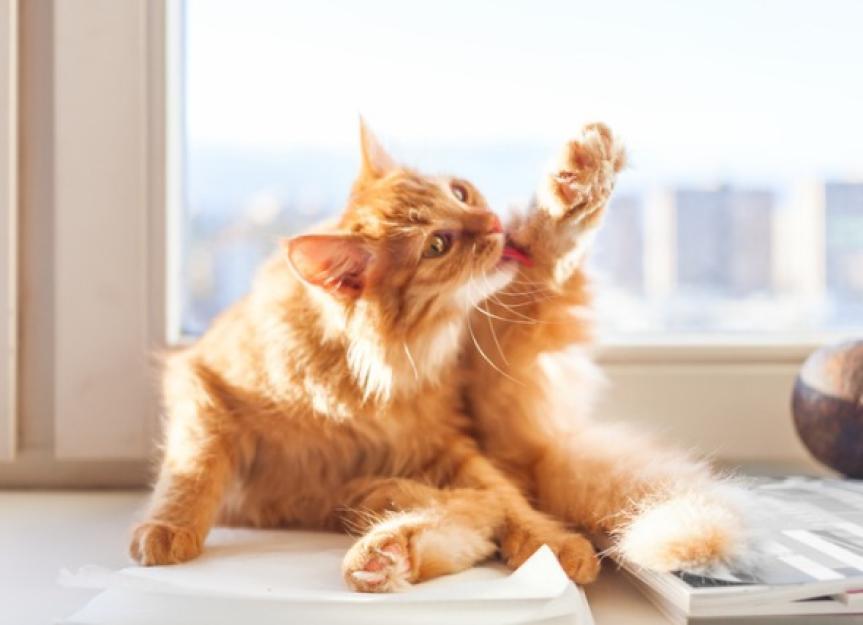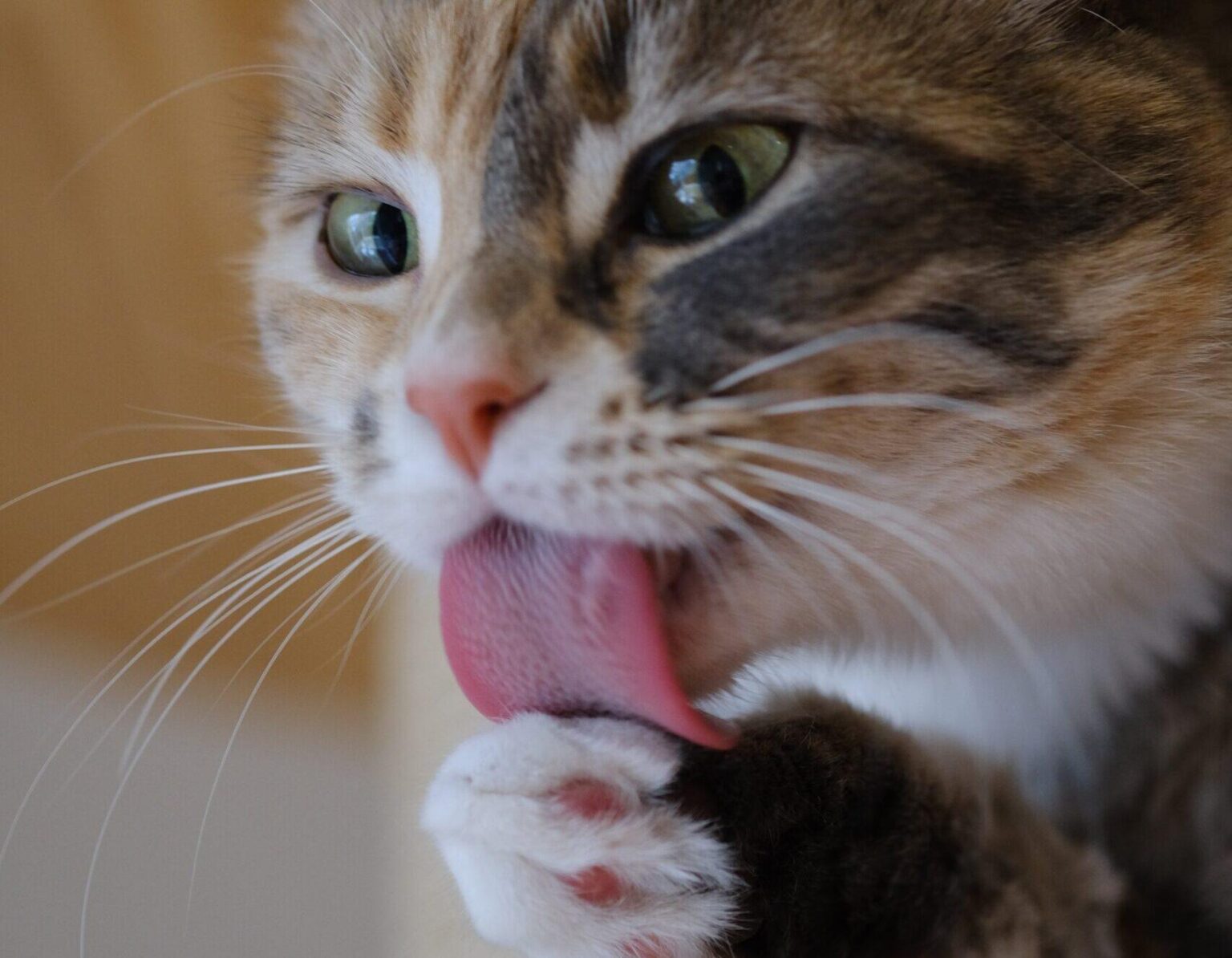If you’ve ever caught your feline friend unexpectedly licking the couch, the carpet, or even your hand, you might have found yourself wondering what’s behind this curious behavior. While occasional licking is a normal part of a cat’s grooming routine, excessive or unusual licking can sometimes signal underlying issues. As cat owners, it’s important to understand the reasons behind this behavior to ensure our furry companions remain happy and healthy.
In this article, we’ll explore the common causes of excessive licking in cats, from behavioral quirks to medical concerns, and provide helpful solutions to address the issue. Let’s dive in and unravel the mystery of why your cat feels the need to lick everything in sight!
Table of Contents
- Understanding Feline Behavior: The Reasons Behind Your Cats Licking Habits
- Exploring Medical Issues: When Licking May Indicate Health Concerns
- Environmental Factors: How Your Home Can Influence Your Cats Licking
- Practical Solutions: Managing Excessive Licking in Your Cat
- Q&A
- Future Outlook

Understanding Feline Behavior: The Reasons Behind Your Cats Licking Habits
Cats are fascinating creatures, and their licking habits can often leave their owners puzzled. Understanding why your feline friend engages in this behavior is essential to ensuring their well-being. One common reason for excessive licking is grooming. Cats are instinctual groomers, and they spend a significant part of their day cleaning themselves. This behavior is not only a way to maintain hygiene but also a means of self-soothing. In addition to personal grooming, they may lick you or their surroundings to demonstrate affection or mark their territory with their scent.
However, excessive licking can sometimes indicate underlying issues. Stress, anxiety, or boredom can lead your cat to lick more than usual. They might be trying to cope with changes in their environment, such as the addition of a new pet or moving to a new home. Additionally, medical conditions like allergies or skin irritations can result in persistent licking. If you notice your cat licking with increased frequency, consider the following strategies:
Enrichment: Provide toys, scratching posts, and interactive playtime.
Routine: Maintain a consistent schedule to reduce anxiety.
Veterinary Consultation: Seek professional advice to rule out medical issues.
Exploring Medical Issues: When Licking May Indicate Health Concerns
Licking in cats can sometimes be more than just a quirky behavior; it can hint at underlying health issues that warrant attention. If your cat is excessively licking objects, surfaces, or even themselves, it’s essential to consider potential medical concerns. Some of the common health-related triggers for this behavior include:
Allergies: Your cat could be reacting to allergens in their environment, such as pollen, dust, or certain foods, leading to compulsive licking.
Skin Conditions: Issues like dermatitis or infections can cause discomfort, prompting your feline friend to lick the affected area excessively.
Stress or Anxiety: Emotional stress can manifest physically, resulting in repetitive behaviors like licking.
Pain or Discomfort: Licking a specific area may indicate pain, whether from an injury or a more profound health condition.
Monitoring your cat’s licking habits is crucial for early detection of potential health problems. In many cases, consulting with a veterinarian can provide clarity and guide you toward appropriate solutions. To facilitate a better understanding, consider keeping a record of your cat’s licking patterns, noting any other symptoms that may arise. Here’s a quick reference table that can help you gauge when to seek veterinary advice:
| Behavior | When to Seek Help |
|---|---|
| Excessive licking of objects | More than 30 minutes per day |
| Licking causing bald patches | Immediately |
| Focus on specific areas | Accompanied by swelling or redness |
| Licking and vocalization | Signs of distress or discomfort present |
Environmental Factors: How Your Home Can Influence Your Cats Licking
Environmental factors play a significant role in shaping a cat’s behavior, including their tendency to lick surfaces or objects. Cats are creatures of habit, and their surroundings can greatly influence their comfort levels. For instance, a stressful environment—such as a home with loud noises, frequent visitors, or the presence of other pets—can lead to increased licking as a coping mechanism. Similarly, if your home lacks stimulating elements like toys or scratching posts, your cat may resort to licking as a way to relieve boredom or anxiety. By creating a calm and enriching environment, you can help mitigate this behavior.
Additionally, the cleanliness and scent of your living space can affect your cat’s licking habits. Many cats are naturally drawn to particular textures and scents, and if they are not exposed to varied stimuli, they may fixate on licking items that have absorbed their owner’s scent. Consider the following changes to encourage more positive licking behaviors:
- Ensure that your carpets and furniture are free from allergens.
- Provide a variety of textures through pet-safe blankets or toys.
- Maintain a consistent cleaning routine to reduce unfamiliar odors.
Implementing these small adjustments can create a more inviting atmosphere for your feline friend.
Practical Solutions: Managing Excessive Licking in Your Cat
Managing excessive licking in your cat can be a multi-faceted approach, requiring both observation and action. Start by identifying potential triggers; these can range from stress or boredom to underlying health issues. Here are some practical tips to help you curb the compulsive behavior:
Increase Playtime: Engage your cat in interactive play sessions to reduce boredom and channel their energy positively.
Provide a Stimulating Environment: Introduce puzzle toys or scratching posts to keep your cat mentally stimulated.
Reduce Stressors: Identify and minimize any sources of stress in your cat’s environment, such as loud noises or aggressive pets.
Consult a Veterinarian: If licking persists, consult your vet to rule out any medical conditions or allergies.
If behavioral strategies don’t yield results, consider techniques to redirect your cat’s licking. Using a soft, pet-safe deterrent spray on the areas they frequently lick can dissuade them effectively. Additionally, a feline pheromone diffuser can create a calming atmosphere, helping to alleviate anxiety-driven licking. Below is a simple table outlining common products to assist in managing this behavior:
| Product | Purpose | Recommendation |
|---|---|---|
| Interactive Toys | Engage and stimulate your cat | Daily play sessions |
| Pheromone Diffusers | Reduce anxiety | Continuous use recommended |
| Deterrent Spray | Discourage licking | Apply as needed |
Q&A
Q: Why does my cat lick everything?
A: Cats are naturally curious creatures, and licking is a way for them to explore their environment. This behavior can be attributed to several factors, including grooming, comfort-seeking, boredom, and even anxiety.
Q: Is licking a sign of stress or anxiety in cats?
A: Yes, it can be. If your cat is licking excessively or targeting specific objects, it might be a coping mechanism for stress or anxiety. Changes in the household, like moving or the introduction of new pets, can trigger this behavior.
Q: What are some common things my cat might lick?
A: Cats tend to lick a variety of things, including soft fabrics like blankets and clothing, their own fur, and even hard surfaces like floors or furniture. Each of these can serve different purposes, from comfort to curiosity or grooming.
Q: How do I know if my cat’s licking is normal or a cause for concern?
A: Normal licking is generally occasional and not excessive. If your cat is licking so much that it causes hair loss, skin irritation, or if it seems compulsive, it’s best to consult a veterinarian to rule out medical issues.
Q: Can I stop my cat from licking things?
A: While you can’t completely eliminate the behavior, you can manage it. Providing engaging toys, regular playtime, and a stable environment can help reduce licking triggered by boredom or stress. If it’s anxiety-related, consult a vet for further advice.
Q: What should I do if my cat starts licking me a lot?
A: Cats often lick their owners as a sign of affection and bonding. This behavior is usually harmless and indicates that your cat feels comfortable with you. However, if it’s excessive, you may want to gently redirect them with toys or playtime to curb the behavior.
Q: Are there medical conditions that could cause excessive licking?
A: Yes, some medical issues, such as allergies, skin conditions, or gastrointestinal problems, can lead to increased licking. If you notice changes in your cat’s behavior, appetite, or overall health, it’s important to consult a veterinarian for a thorough examination.
Q: Can I train my cat to stop licking certain things?
A: Training cats can be challenging, but it is possible to redirect their behavior. Use positive reinforcement, such as treats or affection, when they engage with appropriate objects. Additionally, providing alternatives, like catnip toys or scratch posts, can also help.
Q: What products can help reduce my cat’s licking behavior?
A: There are various sprays available that have a bitter taste, which can deter cats from licking specific surfaces. However, it’s vital to ensure that any product used is safe for pets. Always consult with a veterinarian before trying new products or methods.
Q: When should I take my cat to the vet regarding licking?
A: If your cat’s licking becomes excessive, leads to injury, or is accompanied by other concerning symptoms—like vomiting, diarrhea, or changes in behavior—it’s important to see a veterinarian. They can help diagnose any underlying problems and suggest appropriate treatments.
—
Feel free to reach out if you have any more questions about your cat’s behavior! Understanding their needs can help strengthen the bond you share.
Future Outlook
while it may sometimes be puzzling to witness your feline friend licking everything in sight, understanding the common reasons behind this behavior can help you address any underlying issues. From natural instinct and stress relief to dietary deficiencies and health concerns, identifying the cause is the first step in finding a solution. Remember, it’s always a good idea to consult your veterinarian if you notice excessive licking or any changes in your cat’s behavior. By keeping a close eye on their habits and providing a loving environment, you can ensure that your cat remains happy and healthy. Don’t hesitate to share your experiences or ask questions in the comments below—after all, we’re all in this together when it comes to caring for our beloved pets!
















